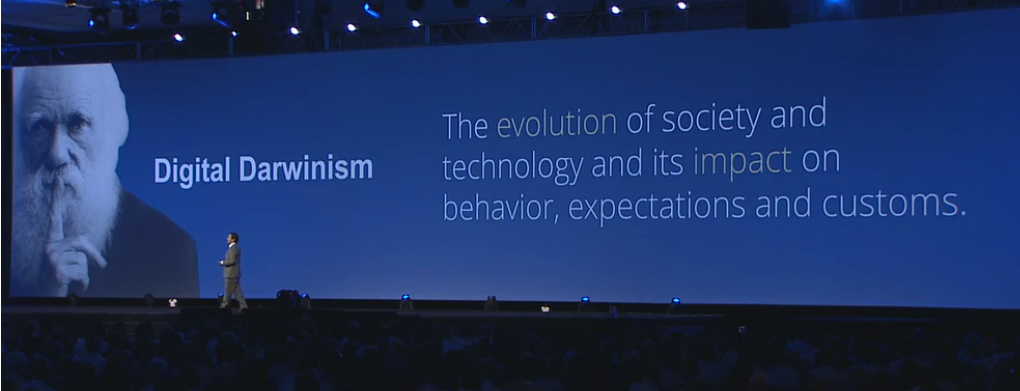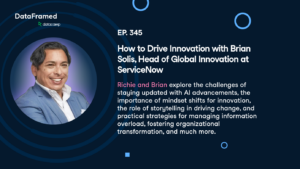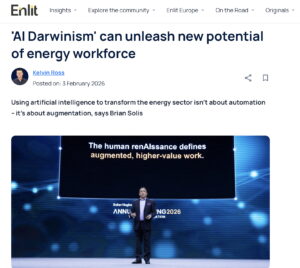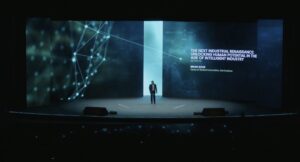Digital Darwinism: The evolution of society and technology and its impact on behavior, expectations, and behaviors.
“It is not the most intellectual of the species that survives; it is not the strongest that survives; but the species that survives is the one that is able best to adapt and adjust to the changing environment in which it finds itself.” – Leon C. Megginson
Transformation becomes the minimum ante to surviving evolution.
At some point though, we have to stop reacting to change and become the change that everyone else reacts to.
Shift from a reactive mindset to a proactive one.
Ask questions that take your thinking beyond the givens.
With #AI for example, it is a given that automation and cost take-outs are not only possible, they propane the tyranny of the status quo. Everyone is looking at this for quick wins.
What matters most is how you think differently to uncover opportunities for AI to augment or even innovate work to grow, create new value, drive new revenue streams…exponentially.
This is what it means to differentiate. This is what it means to transform. Otherwise you’re digitizing what you did yesterday to operate tomorrow.
Digital Darwinism favors those who are “able best to adapt and adjust to the changing environment.”
The environment…your market…your customers and employees…are changing and evolving. You must too.
This isn’t just a chance to optimize work to be more efficient. This is the time to reimagine work itself to be more effective and more competitive (and profitable).
Many automate the same activities they’ve always done, rather than innovating a better way forward. Automating bad processes won’t make them better. In the same manner, you can’t cut your way to innovation.
Ask yourself, ask your teams, how AI challenges fundamental assumptions you have about your business and operational models?
The answers will lead beyond quick wins to unlock differentiating use cases and transformational initiatives.






Leave a Reply